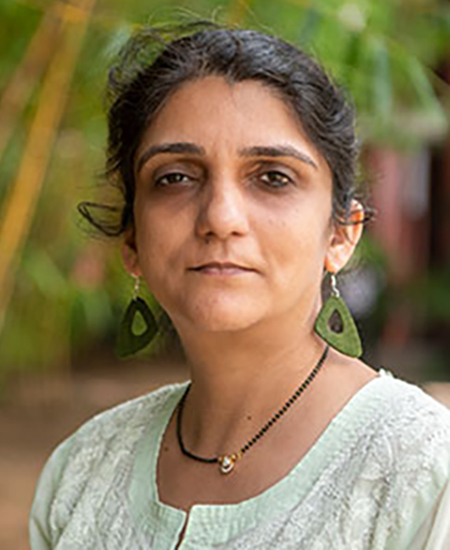
Dr Wricha Tyagi is a plant molecular biologist by training with a postdoctoral experience in plant breeding with more than 19 years of experience in crop improvement and trait understanding. Dr Tyagi is currently Principal Scientist and Cluster leader (Cell & Molecular Biology and Trait Engineering) in the global research program accelerated crop improvement at ICRISAT, where Dr Tyagi leads and provides direction to the cluster’s research efforts in alignment with overall research goals of ACI.
Dr Tyagi has a PhD from International Centre for Genetic Engineering and Biotechnology, New Delhi, in life sciences (plant molecular biology) and post-doctoral training from Cornell University, USA, in plant breeding. Graduation from Delhi University in Microbiology followed by post-graduation research in life sciences from Jawaharlal Nehru University, New Delhi. PhD from ICGEB, New Delhi, in the area of plant molecular biology involved isolation and characterisation of vacuolar signalling components of Pennisetum glaucum involved in salinity stress. While at Cornell University, molecular characterization of 400 O. rufipogon using SSR markers as well as design of first SNP chip in rice using Illumina platform was performed. Alongside, DHR (NADH-dependent dihydrofavonol reductase) promoter and underlying elements from rice were also characterised leading to identification of key cis-acting elements and minimal promoter involved in colour development in rice endosperm.
Since 2009 till July 2022, Dr Tyagi has been engaged in teaching and research at India’s first Central Agricultural University. Dr Tyagi worked as Professor (Plant Molecular Biology/Biotechnology) at India’s first Central Agricultural University (Imphal), Meghalaya in School of Crop Improvement, and guided 15 post-graduate research students to date. Dr Tyagi has till date published a total of 103 publications including 46 peer reviewed papers and successfully completed eight projects as PI with funding from various donors. The focus has been to provide long term solutions to problematic soils particularly acid soils using genomic tools where amelioration and amendment measures are not able to offer long lasting solutions. The genetic solutions contemplated are likely to pay dividends in crop improvement of cereals, legumes and oilseeds.